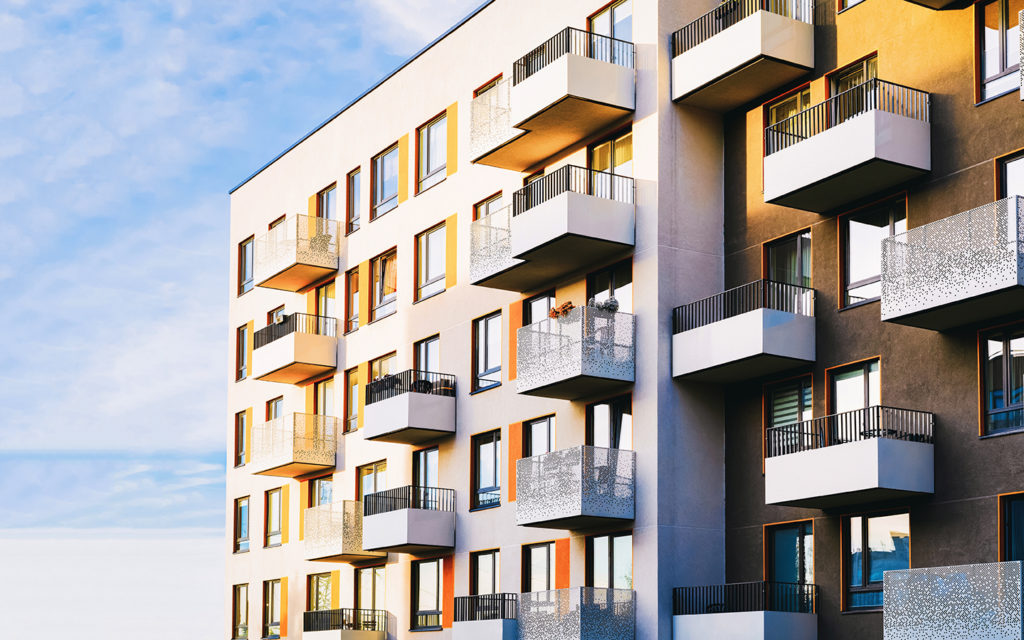Seasonal changes might be refreshing, but they also pose a number of hazards for landlords and building managers, including the possibility of liability issues. You are responsible for maintaining blocks of flats under laws such as the Corporate Manslaughter and Homicide Act of 2007 and the Health and Safety at Work Act 1974.
If you think that the hazards of slipping and falling in the fall and winter are limited to the regular ones, think again. By using adequate risk management approaches, it is necessary to understand and plan for seasonal risks, such as package and post theft owing to festive season internet shopping, and fire threats from fairy lights.
Plan Insurance can accommodate your Property Owners & Landlord Insurance needs. Just fill in our short online quote form, and our professional brokers will be in contact to arrange your insurance.
Understanding Seasonal Risks
Consider the following seasonal threats, whether it’s autumn leaves or winter snowfall:
Leaves, Snow and Ice Risks
- Ice/icicle-related slips, stumbles, falls, or significant injury
- Excess snow or ice has blocked passageways, autos, parking lots, and building entrances and exits.
- Snow and leaves have caused damage to pipes and gutters. A gutter clearance contract may be advisable.
- Working at a height to clean excess leaves and snow from the roof and gutters caused injury.
- Damage to the outside from falling tree limbs or the roof collapsing under the weight of snow
- Melted snow and ice have resulted in flooding.
Extreme Cold Risks
- Frozen or burst pipes
- Temporarily halted water supply
- Illnesses among tenants and visitors as a result of a faulty heating system or inadequate insulation
- Heating system failure or breakdowns
If you think that the hazards of slipping and falling in the fall and winter are limited to the regular ones, think again. Prepare for the seasonal risks listed below.
Communal Area Risks
- In lounges, candles or kitchens might cause fires.
- Inside (the lobby) and outside, there are fire and electricity hazards from festive lights or decor (the garden)
- Theft of packages and mail, which is more common over the holidays, is on the rise.
- Increased third-party responsibility as a result of renters’ holiday guests
- Festive decor, winter accoutrements (such as snow boots or umbrellas), or extra garbage have blocked doors and exits.
- Communal area floors have been damaged due to renters tracking in dirt, snow, and salt.
Implementing Proper Risk Management
Keeping these seasonal risks in mind, risk management strategies should be used to mitigate potential hazards and reduce the possibility of liability concerns.
Leaves, Snow and Ice Risk Management
- Plough and grit exterior community surfaces, such as vehicle lots and entryways, on a regular basis to remove ice and snow. Always make sure you have enough salt and grit products on hand.
- Make a thorough plan of areas that collect a lot of snow or leaves, such as the roof, and schedule regular clearance.
- Vehicles and equipment for snow and leaf removal should be updated and maintained.
- Provide suitable personal protective equipment to maintenance workers who are working in snowy or icy circumstances, especially those who are working at a height.
- Pipes should be inspected on a regular basis. Install insulation on exposed pipes and do routine tests to ensure they are working correctly when snow and ice fall.
- To avoid water and ice collection, keep outside surfaces level, paved, and free of potholes.
Extreme Cold Risk Management
- To avoid freezing, turn off the water supply to outside faucets. To avoid ice build-up, make sure the gutters are kept free.
- Ascertain that all tenants are aware of where their stopcocks are located and what to do in the event of a leak or a frozen pipe.
- Building insulation should be updated and maintained, and windows should be securely sealed. Ensure that the inside temperature remains comfortable and safe (at least 21 degrees Celsius) during the winter months. The Department of Communities and Local Government warns that temperatures below 19°C pose a minor risk of health impacts, while temperatures below 16°C provide substantial health hazards to the elderly.
- Check your heating systems on a regular basis.
Communal Areas Risk Management
- Make a formal agreement with renters about how to use holiday lights, candles, and decorations safely in communal areas. Furthermore, do not leave festive lights or candles blazing for long periods of time, especially when unattended.
- To reduce the risk of electricity risks from holiday light use, examine electrical equipment such as sockets and fuse boards on a regular basis.
- During celebrations, make careful to enforce laws prohibiting decorations from blocking entry and exit points.
- Make a written agreement with renters on parties, visitors, and behaviour in common spaces.
- In the case of a fire, make sure tenants, staff, and visitors are informed of the emergency evacuation preparations.
- Ensure that outdoor community areas have appropriate illumination to compensate for the lack of natural light and that all lightbulbs are operational.
- Clear excess leaves, snow, and trash from communal areas on a regular basis.
- Check the security of the doors, windows, and letterboxes on your block. To avoid unauthorised public access and post theft, ensure that all exterior access points are controlled.
- Complete a risk assessment for health and safety that takes into account seasonal concerns as well as threats particular to communal areas. A fire risk assessment should be included.
For additional guidance on property management, contact Plan Insurance Brokers today.


